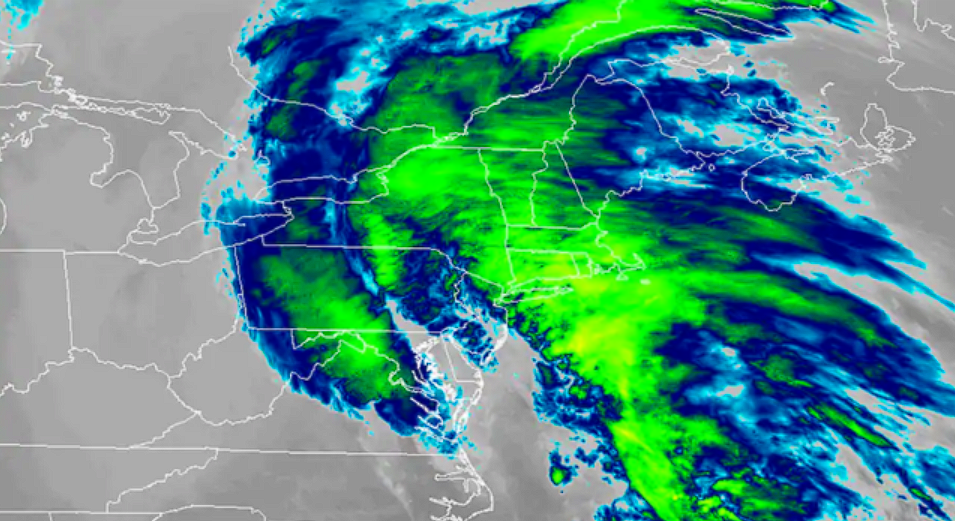Bomb cyclone Ciarán set to slam Europe with extreme weather.
Others are reading now
The storm system, named Ciarán by the U.K. Met Office, is expected to be one of the most intense storms to hit northwest Europe in recent history.
This is reported by Washington Post.
Its origins can be traced back to a strong cold front that recently swept across the eastern United States, coupled with a low-pressure zone forming east of New England.
This low-pressure zone is expected to intensify rapidly, thanks to an unusually strong jet stream racing across the Atlantic.
Also read
Warnings and precautions
Amber warnings, the second-highest level, have been issued for Northern Ireland, western Wales, and southern England.
The Met Office has warned that the storm could disrupt travel, utilities, and even cause structural damage.
In Ireland, there is concern for up to 4 inches of rainfall causing flooding before the storm arrives. France is also on high alert, with the possibility of a rare “sting jet” that could bring winds gusting up to 105 mph to the northwest coastline.
The “Bomb Cyclone” Phenomenon
Ciarán is classified as a “bomb cyclone” due to its rapid intensification. For a storm to be considered a bomb cyclone, its minimum central air pressure has to drop by 24 millibars in 24 hours.
Ciarán is expected to achieve that in just 12 hours, with a total drop of about 37 millibars. This could make it one of the strongest storms to hit southern England in 200 years, according to climate scientist Ed Hawkins at the University of Reading.
The storm is expected to bring heavy rainfall, large waves, and severe winds to Britain, France, Spain, and Portugal. In Britain, winds could gust between 65 and 80 mph.
In France, winds could reach up to 105 mph due to the possible formation of a “sting jet.” Spain and Portugal are also expected to experience the storm’s southern fringe, affecting other parts of southern and central Europe as well.


